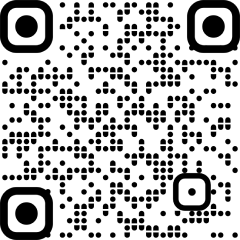AI, Modern Tech & the evolving dynamics of Patient Care in India

New Delhi: As healthcare professionals in India increasingly adopt digital tools in clinical practice, advancements such as genomics, AI, and data analytics are transforming patient care—enabling personalized treatments and accelerating timely, effective interventions.
While adoption is steadily increasing, it faces significant challenges—including inadequate infrastructure, rising costs, and unresolved data privacy concerns.
Delving into this space the inaugural edition of ETHealthworld FutureMed X - The Smart Patient Care Summit convened a panel discussion on Reengineering Patient Care- A Changemakers Perspective.
The experts who shared their insights at the session included Prof Anurag Agrawal, Head-Koita Center for Digital Health & Dean - BioSciences and Health Research, Ashoka University, Dr. Raj Shankar Ghosh, Senior Advisor, Environmental Health, Public Health Foundation of India (PHFI), Dr Chandrakant Lahariya Founder -Director, Foundation of People Centric Health System; Leena Menghaney, Lawyer/Consultant, Public Health, Pharmaceuticals & Access; and the discussion was moderated by Vikas Dandekar Editor ETHealthworld, The Economic Times.
Radiology services in India stands as a frontrunner in AI adoption, where its integration is helping them to cut down time lines of analysing millions of scans, However Prof Agrawal, noted, “while radiologist have increasingly adopted AI these tools are not yet advanced enough to be fully relied upon for clinical decision-making and the coming age of medical professionals is facing entering a field where technological integration presents both promise and pressure.”
Citing examples like Continuous Glucose Monitoring (CGM)--a technology used to track glucose levels in real-time round the clock—Lehariya stressed that such innovations have shown their potential but their adoption is yet to scale up in India and the growing integration of artificial intelligence (AI) in healthcare should prioritise expanding access, reaching underserved communities, and improving outcomes on the ground.”
“We will keep evolving and innovating new things but from the very beginning we should focus on taking those innovations to a broader section of society and unless that is achieved it will be partial success,” Dr Lehariya stressed.
“The advent of AI is steadily making its mark in healthcare. To develop a comprehensive, integrated solution for diverse health challenges, stakeholders must unite their efforts toward the concept of One Health—linking environmental, animal, and human health, Dr Ghosh, said
“Empowering communities to build trust is essential, so AI becomes part of daily life and effectively addresses a range of healthcare issues,” he added.
On the policy front, Menghaney emphasized the introduction of HMIS (Health Management Information System) reflects some potential; the absence of ethical frameworks hinders accountable use of digital tools, and introducing strong data protection provisions is essential to unlock the benefits of digitization in public health decision-making.
To counter misinformation Prof Aggarwal suggested that, “there should be constant level of high-surveillance all the time, creation of trusted voices with continuous release of information to counter various misleading information and myths
While India’s healthcare system has long been oriented toward treating infectious and acute diseases, the rising prevalence of non-communicable diseases (NCDs) demands a shift in approach. Clinicians and healthcare providers must rethink existing models and adopt innovative strategies to meet this emerging challenge.
Dr Lehariya added that, while India’s healthcare system has long been oriented toward treating infectious and acute diseases, the rising prevalence of non-communicable diseases (NCDs) demands a shift in approach.

You may also like...
Diddy's Legal Troubles & Racketeering Trial

Music mogul Sean 'Diddy' Combs was acquitted of sex trafficking and racketeering charges but convicted on transportation...
Thomas Partey Faces Rape & Sexual Assault Charges

Former Arsenal midfielder Thomas Partey has been formally charged with multiple counts of rape and sexual assault by UK ...
Nigeria Universities Changes Admission Policies

JAMB has clarified its admission policies, rectifying a student's status, reiterating the necessity of its Central Admis...
Ghana's Economic Reforms & Gold Sector Initiatives

Ghana is undertaking a comprehensive economic overhaul with President John Dramani Mahama's 24-Hour Economy and Accelera...
WAFCON 2024 African Women's Football Tournament

The 2024 Women's Africa Cup of Nations opened with thrilling matches, seeing Nigeria's Super Falcons secure a dominant 3...
Emergence & Dynamics of Nigeria's ADC Coalition

A new opposition coalition, led by the African Democratic Congress (ADC), is emerging to challenge President Bola Ahmed ...
Demise of Olubadan of Ibadanland
Oba Owolabi Olakulehin, the 43rd Olubadan of Ibadanland, has died at 90, concluding a life of distinguished service in t...
Death of Nigerian Goalkeeping Legend Peter Rufai

Nigerian football mourns the death of legendary Super Eagles goalkeeper Peter Rufai, who passed away at 61. Known as 'Do...





